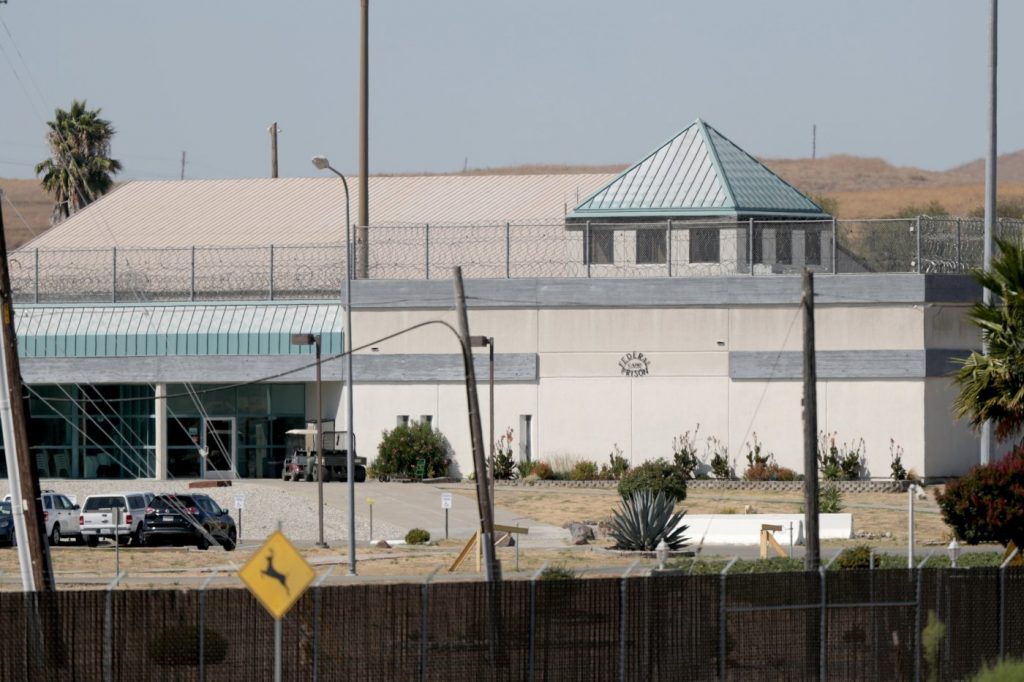OAKLAND — A federal judge opted not to hold the Federal Bureau of Prisons in contempt of court on Tuesday, but signaled renewed interest in mandating some type of oversight over the scandal-plagued FCI Dublin women’s prison.
U.S. District Judge Yvonne Gonzalez Rogers verbally admonished an attorney for the federal prison system for breaking one of her orders, amid concerns that a prisoner had been transferred to Southern California in an act of possible retaliation for testifying about conditions at the Dublin facility. Gonzalez Rogers said she would have levied sanctions against the attorney earlier in her career as a federal judge, but instead opted for a stern warning not to disobey her directives again.
“I’ve been around long enough to know that lawyers make mistakes,” Gonzalez Rogers told the attorney, Madison Mattioli, who apologized for the misstep. “The point is: You need to follow my orders.”
The rebuke capped a nearly two-hour hearing where the judge appeared newly receptive to some form of court-ordered oversight of the Dublin women’s prison this year.
The prison has been embroiled in allegations of a reputed “rape club” among guards that targeted inmates, along with accusations of repeated retaliation by guards against inmates who spoke up about the alleged misdeeds. At least eight staff members at all levels of the prison — from jail guards to the chaplain to the warden — were charged in recent years with sexually assaulting and harassing inmates. Most have either pled guilty or been convicted, including former Warden Ray J. Garcia, who was sentenced in early 2023 to nearly six years in prison for sexually assaulting women.
Advocates of prison inmates filed a sprawling lawsuit in August accusing prison managers of ignoring decades of warning signs, retaliating against inmates for speaking out and providing insufficient mental and physical health care. While no trial date has been set for the civil case, attorneys for both sides said Tuesday they expect to be ready by the end of the year.
The advocates also asked last year for the lawsuit to receive class-action status, amid the filings of numerous other similar lawsuits against the prison system. They asked Gonzalez Rogers to appoint a special master to oversee changes at the prison while the lawsuit winds its way to trial — a move that, if approved, would be unprecedented at a United States federal prison.
On Tuesday, Gonzalez Rogers voiced concerns about allowing the prison to continue operating without some new means of accountability. She described a visit to the Dublin prison she took earlier this month, which left her increasingly worried about the administration of a housing unit known to include solitary confinement cells. Inmates have repeatedly claimed that they are sent to the unit as retaliation for reporting problems at the prison, including the inmate at the center of the contempt of court issue.
“I cannot personally be out there micromanaging Dublin,” said Gonzalez Rogers, who said she didn’t “trust either side” to provide entirely factual information about conditions there. “I certainly learned an awful lot by spending those nine hours out there. And I learned the perspective of each side is not wholly accurate or what my own assessment is.”
The judge added, “I don’t think that the concerns I have can wait a year.”
Mattioli, the prison system’s attorney, declined to comment after the hearing.
Rogers comments represented a shift from earlier comments she made from the bench at the end of an evidentiary hearing in early January, where she voiced skepticism about the need for such a special master. Back then, she said she was “highly doubtful” that an independent monitor was warranted at the facility, noting how the Federal Bureau of Prisons in recent years “has come in and cleaned out” leadership at the prison.
Gonzalez Rogers gave no specific timeline for when she might announce a decision on the requests for a special master or the lawsuit’s potential class-action status.
On Tuesday, attorneys for the inmates also expressed an openness to some other type of oversight entity beside a special master, which would involve a special selection process involving input from both inmate advocates and the prison system’s attorneys.
“Anything (the judge) does will be better than what is happening right now,” said Kara Janssen, an attorney for the inmates.


